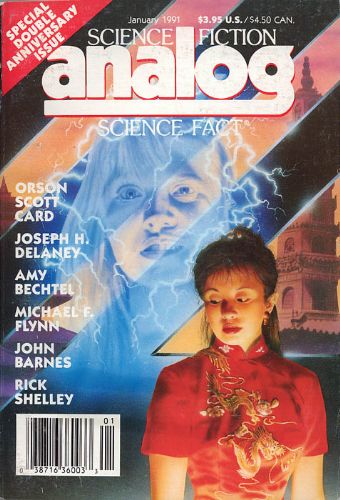Spark of Genius by Michael F. Flynn
I previously reviewed “If It Ain’t Broke” by Maya Kaathryn Bohnhoff from the same issue of Analog and this story by Michael F. Flynn deals with a surprisingly similar theme of what is basically generative AI and its use in literature.

Ken has handed in his manuscript for his latest novel and his editor is full of praise saying that he has finally found his voice. Ken is however having personal doubts as he has created an artificial neural net, fed it with tons of books and it has written this novel for him. It is almost a 1:1 a description of current generative AI models.
As a fairly short piece, it doesn’t go much further than setting up the basic premise and the open ended question for what this might mean for humans and art. The following quote from the story emphasizes what many feel is at stake with how the current AI technology is going:
“Except it wasn’t his voice, at all. It was the voice of a machine. The machine had found the words and the machine had put them together into brilliant metaphors and images; into crisp dialogue that crackled with irony. The machine had learned something by studying the works of the greats; some spark of genius that had always eluded him.”
p. 144
In this story, the machine is able to create a story with a “soul” - which in itself becomes a philosophical question what that is, but it is the generally consensus that current generative AI models are not on the level of good human writers. That doesn’t mean the threat of being replaced is not there and the story briefly touches on what defines creativity, which I would argue is more than just getting input from previous works and re-sample them into a different output.
Read in Analog January 1991
Rating: 3+